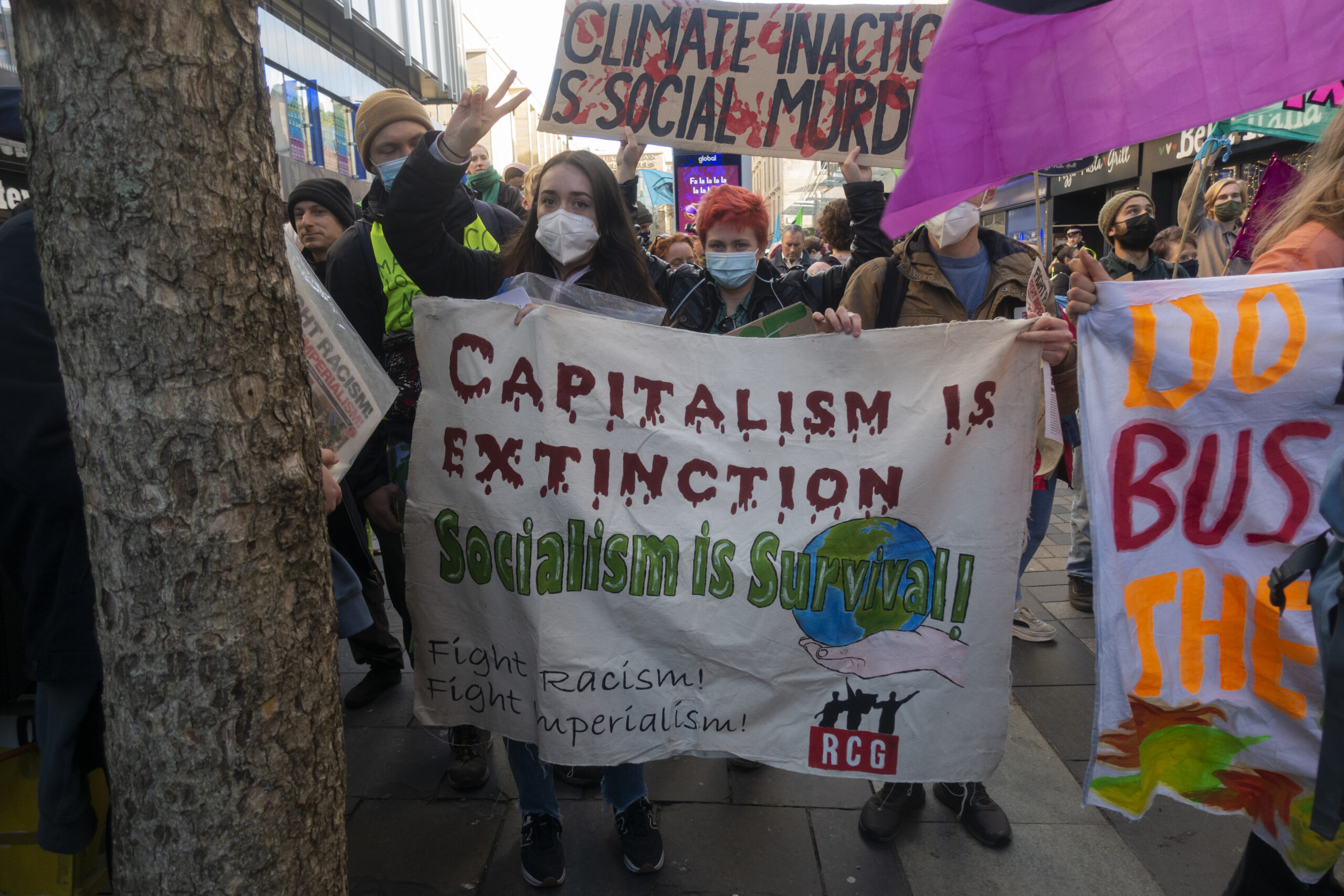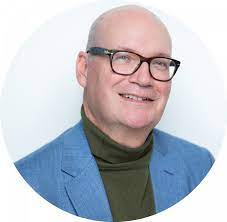 BBC News
BBC NewsBorrowing was £17.4bn last month, the second highest October figure since monthly records began in 1993.

Matt Thomas interviews the barrister and climate change advocate on COP 26 about his extraordinary career on the front lines of the great fight of our times
MT: I saw that you first trained as a barrister, how did you end up in the environmental world?
I went to the University of Western Australia, and I did law there. And then I came back to the UK, really only because my mother was terminally ill and I went to University College London to do my undergraduate law degree.
And for all sorts of reasons – only part of it was to do with the course or the university – I didn’t connect with undergraduate law at all and I struggled to perform having been used to doing well in the art subjects, particularly in English literature and other subjects, I found English law really pretty dark.
I just didn’t connect with it so I had a period of time, right at the end of my degree, which was very intense and rather sad, and with the help of friends and then a girlfriend, I somehow managed to get a decent grade. That was largely because in my last year I focused on international law and jurisprudence legal philosophy.
Suddenly I found a way I could understand – partly perhaps because I had grown up in Lebanon and Singapore and Australia. International law seemed to fit more my understanding. I was interested in the cases of international negotiations and the things that international law seemed to be based upon, and I was attracted to the more obvious moral and political case for law that you see in the legal system that’s still forming itself.
And it just seemed to work. I got my first proper job I suppose at the Research Centre for International Law, I became director Studies in Law at one of the colleges and the Chernobyl incident had inspired intense academic conversations about the question of what you do when environmental harm so obviously crosses borders.
The Soviet Union did not inform its neighbours about Chernobyl. They kept it secret, and the world really found out about it because of a private satellite who saw it and followed the clues on the radionuclide cloud. Governments did not bring actions directly against each other in the international court. It seemed to us at the time this was just an example of the legal system not working.
MT: So, the Chernobyl disaster was the ‘lightbulb moment’ I guess in terms your first link to the environment?
Yeah, that was it. It was a graphic example of a trans-boundary environmental harm. And the way the law worked – or didn’t – reveal inadequacies of the international legal system. It needed a fresh approach. And then after that, the climate change issue emerged and had similar more substantial problems to resolve. But the obvious place to be is international law because the problem could not be resolved by individual nation states.
Q: As a ‘friend of COP’ what has been your involvement in the conference?
It’s a day to day, topical question. All the governments who have this role of president form groups of advisors, and they vary. I’ve done a few, they vary in type, but they’re meant to help the president’s function which is to shepherd everybody towards agreement.
Equally, all presidencies have some kind of thematic approach to the climate problem, as well as their principal obligation which is to get agreement on whatever the agenda items are for the year.
The UK Government which obviously has a very substantial and competent civil service doesn’t really need the kind of advisors that other governments have needed. I’ve been a senior advisor to Morocco and to Fiji, where I was really hands on.
Outside of government, I think it is useful to have another circle of advisors who are independent and can say straightforwardly what they think and are worried about the consequences. Even so, it can be frustrating sometimes when you aren’t adequately listened to and anyway. But we have regular calls, as a group, directing into Alok Sharma who is the president of the process. We also have calls with his senior officials on particular topics. And, you know, there are several themes, and each of those themes have subsets of the group and often I happen to be involved, particularly with the nature theme at the moment because that’s part of a project I’m working on. But I also get involved in the finance and because I’d be an experienced negotiator, I’ll talk to the chief negotiator as well about how they’re running the process.
Where you’re going to arrive in terms of negotiations is always contingent on things that have nothing to do with climate change or some other geopolitical issue. Some other pressing immediate concern, something that has to do with a relationship that is central to power in the world.
Success or failure usually turns on the US and China. There are really only 20 other countries that have to come to agreement to make a difference, even though the whole process works by consensus here.
But if you don’t have India, China, US, the EU aligned or capable of coming to agreement then your event fails.
MT: I was going to ask later on about what sort of challenges there are but from what you have mentioned it seems topics like geopolitics seem to actually come before addressing climate change?
They can’t be separated. Every now and again, you see the potential for climate change. As an existential issue, it has the capacity to bind, and it can actually bring people together; it can make people desire cooperation. That remains a hope that I have that at a very elemental level. There is common ground between these big forces in the world who have other reasons for disagreeing. But that might be the idealist in me speaking.’’
MT: On your website you say that, when addressing issues centred on tackling climate change, you are ‘interested in the space between law, policy, finance and technology’. Can you elaborate on what you mean by this?
I’ve decided that’s probably my function. So, for example, if you want to deploy capital to solve the climate change problem you want your money either to have very specific obligations to deal with climate, or, that there is an opportunity for you to compete with incumbent businesses and technologies that may actually be causing the problem but have been there for a while.
So if you want a marketplace for money and technology and other resources, you have to change the rules. So changing the rules means changing the law or changing the application of the law, or changing the public policy interpretation of the law.
Clearly, there’s politics and power politics involved with that but there’s also permanent civil servants who have mandates that are already set. They, on the whole, either make or implement policy depending on where they are in the world. Frequently, the language spoken by all parties is so different, they don’t quite understand each other. And they certainly don’t trust. And then, the world of finance has his own ecosystem, all sorts of different types of finance, they have become quite distinct tribes with their own return expectations. They have their own sense of themselves. Believe me, they really do have their own sense of who’s best.
And sometimes that doesn’t connect with people who create enterprises, entrepreneurs, innovators, people starting out, have no experience of any of these phenomena. They need to be helped, but they also need to have an environment in which they can actually compete where they can thrive.
I like to keep on top of what’s coming through in the world of innovation I want. I have got some experience to offer but I don’t know the answer, so I’m interested in being something of a carrier of ideas, and a connector of people.
MT: It seems to me that there is a strong focus on climate change but the interrelated issue of biodiversity loss gets far less attention. Climate change is just one of the factors behind the destruction of habitats and the degradation of the natural world. How can companies, consumers and policy makers elevate understanding of the impact of biodiversity loss on human societies?
‘Yeah, and they are completely interrelated, which makes it evermore complex to solve. I spent most of the last year, more focused on nature.
I’ve worked a lot on wildlife. I did the International Whaling Convention, the Convention of Endangered Species, illegal trafficking with wild birds and other species.
It’s quite dangerous work too. I work with people who risked their lives trying to reveal what was going on. So this has been there all along but it’s been a relatively minor issue for big politics. It’s an issue for people who care. It’s an issue for people who’ve got a particular concern about a species, and it’s widely felt. People do feel a connection with nature.
Clearly something happened to us psychologically during COVID, where people started to appreciate nature wherever they lived – maybe, particularly if they lived in a city.
The climate issue has highlighted aspects of the decline and threat to nature, but not all of them. It has a tendency to deal with climate as a priority that has sometimes led to people thinking too little about the complexity of natural systems. Planting trees is not a solution a guaranteed solution as planting trees means monoculture, and actually, biodiversity loss, which can happen. And as has happened.
Recently some good research came out of Oxford, on how many 50 degree days there are in a year now. The more you have those a year, the more you suffer economically, but there are things that can be done and relatively quickly to change that and a lot of it is to do with planting trees or creating green surfaces. But we also need to manage rainfall, because we’re getting more intense rainfall which our hard surfaces can’t handle.
Q: Do you expect these conversations around biodiversity to become more mainstream in upcoming years?
I do. And I think that language is important. Biodiversity doesn’t reach people. Nature does. So choosing the right language to communicate, choosing the right messengers, obviously we’ve had the legendary David Attenborough to do a lot of the messaging, and he has made the connection between climate and biodiversity pretty clear. But if you want to do something about it in your own place, you probably need to organise at a community level. And that’s really hard to do, but necessary.’
Q: We touched on it briefly earlier but what do you see as the main barriers to tackling climate change?
I think one of the main barriers is psychological. It’s a problem that feels too big for me as an individual. If I don’t think I’ve got any levers of power to pull, then I want someone else to do it.
And meanwhile, I’ve got something that’s immediately pressing on my concerns that I’ve got to feed children or I’ve got to find shelter, I’ve got something that right now I have that I have to care about. This issue looks literally beyond me – beyond my levers – and has a temporal dimension that encourages you to postpone action.
The other psychological fact is that we all experience is that we all have a kind of status quo bias. I don’t mean that in a political sense I mean, we’d rather not be disruptive.
And, and also, there’s a generational problem here that the generation that benefited from the tremendous growth in the 20th century that was driven by widespread use of fossil fuels, miraculous, use of fossil fuels, the innovation that went into fossil fuels the number of products, God knows. Look around you. Now, how many things in my room right now have a petroleum base or hydrocarbon base. Yeah, staggering.
It’s very hard for that generation, to feel like there was anything wrong, you know, good things came from that place, wealth, and security, and material benefit.
On top of all that, there are cultural connections that are very, very deep. You can see that most clearly in in the kind of mining and mineral cultures of Australia and Canada and the US.
So, you know someone from the soft city comes along and says, all that, all those minerals and oils are there bad thing, they get dismissed because they come from the soft city and they don’t know how hard it is to win this stuff from the earth and create wealth. Those things are hugely important.
But in the last few years that the things have shifted quite markedly. Because there has been some government intervention the barriers are different now. They’re to do with how quickly you can make the transition, and how fairly you can make the transition.
There are several set piece battles, I don’t like to use war language, but what the hell. One of them is that renewables have to beat coal in Asia. And yeah, then you got to ask, “Where’s the money going to come from?” Well, there’s lots of domestic capital in China. Actually, in the end I’m not that worried about China.
There’s a very confused picture, because they’re the largest renewable energy market in the world but they’re also still doing a lot of coal. But Indonesia is crazy. Why on earth are they building more coal plants?
MT: How would you rate progress in the UK in comparison to other mature economies around the world?
‘Very good in parts. Very good in creating the legal frameworks and very good in concentrating expertise in many disciplines, less good on implementation.
Unfortunately, we’ve had some quite mediocre government where people who are more interested in politics as played out in the media.
And that’s not a party political point because it works across the spectrum. It just is the case that too much politics is based on how you appear on a screen and how you are interpreted by the media and not enough with how you govern your department.
Unfortunately, climate change is one of those issues that you need good government. A nice soundbite doesn’t actually solve the problem.’’
Who would you say are the best at implementing right now?
As a structural point, I think it is much easier to implement in smaller states, where there’s a high level of trust in the community. Denmark would be an example of an effective response/
Periodically, the other Scandinavian countries do well and you see elements of progress in Germany and the Netherlands. I mean elements because it’s not perfect by any stretch. And then you see it also in the highly educated and technocratic cultures like Singapore and Korea. So those places have done well.
But nobody has all the answers, and nobody can solve the problem on their own. So, unless you get something like 20 to 25 of the major economies of the world, all doing something broadly similar in terms of effort, then nobody, nobody can protect themselves from all consequences.
People will move. Of course, they will move. You would, I would. If I’m living in a place where I’ve got no water I am going to go somewhere where there’s water. If I’m living in a place where there are 20 days above 50 degrees in a year, I’m taking my family out of there. I want them to survive.’
MT: Are there any specific goals that you and your ecosystem have for the next couple years?
I’m working at the moment on natural capital. I’ve got goals associated with that. And, and they’re largely to do with lining up a big general principle, like, we should value natural capital, and then taking it, drawing that down into the institutions, where they have the power to apply that in practice, and then showing examples of how the principles applied through investment in a real transaction.
These are the kinds of things that are both short and long term because I think we’ve got some momentum on the topic. But then there are others that are just the same as they always were, really: they’re about trying to get agreement to keep as far as humanly possible under or not too far past the 1.5 degree threshold.
I’m constantly scanning for enterprises that I think have a solution that could scale. Now I want to find an institutional capacity to do that routinely so it’s not left to a few individuals around the world, whereby we actually have good well-structured, well-motivated, incentivized institutions, to find the solutions that can be accelerated and deployed, because we’re in a race. Alot of these great ideas will emerge organically over time but we actually need to speed the whole process up.’’

